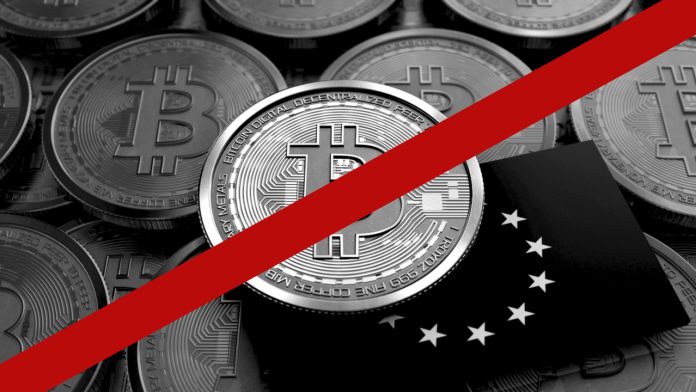The countries in the European Union have agreed to limit the amount of cash payments and to increase the scrutiny on cryptocurrency transactions. This was decided at the bloc’s meeting on Nov. 6, which established a cap of 10,000 euros ($10,557) on cash purchases and a tighter control on crypto transfers over 1,000 euros ($1,055).
The European Union Sets Up Cash Limit to Combat Money Laundering
The European Union has taken a step forward in the fight against money laundering and criminal activities. On November 6, all the countries in the bloc decided to impose a new cap for cash payments, which would be 10,000 euros ($10,557) across all the countries in the union. However, each country can set a lower limit.
Spain, for example, has a limit of 1,000 euros ($1,055) for cash payments. The European Central Bank (ECB) was not in favour of this measure, as it was seen as a way of limiting the use of cash as legal tender.
Zbynek Stanjur, Minister of Finance for the Czech Republic, said:
It is not possible to make payments of more than 10,000 euros in cash. It will no longer be possible to remain anonymous when buying or selling crypto assets. It will be more difficult to hide multiple layers of company ownership and it will be harder to launder money through silverware or jewelry.
The new rules will also introduce a classification system that will allow countries to reflect their compliance with the standards set by the Financial Action Task Force (FATF). This includes the grey and black lists.
Crypto Transactions Also Affected
As Stanjur said, crypto transactions will also be included in the set of measures. The European Union has agreed that exchanges and other cryptocurrency service providers will be closely monitored for crypto transfers with a value exceeding €1,000 ($1,055).
These virtual asset service providers (VASPs) will also have to comply with the same scrutiny for money laundering and terrorist financing as other financial institutions. As such, crypto custody providers, exchanges, and self-hosted wallets will be subject to risk mitigation measures and other controls when dealing with cross-border payments with cryptocurrencies.
What do you think of the latest measures taken by the European Union to tackle money laundering? Share your thoughts in the comments section below.
Image credit: Shutterstock, Pixabay, Wiki Commons
Disclaimer: This article is intended for informational purposes only. It is not an offer to buy, sell or solicitation. It does not endorse any product, company, or service. Bitcoin.com does NOT provide advice on investment, tax, legal and accounting matters. Neither the company nor the author are liable for any damage or loss caused by, or in connection to, the use of, or reliance upon any content, goods and services mentioned in this piece.

